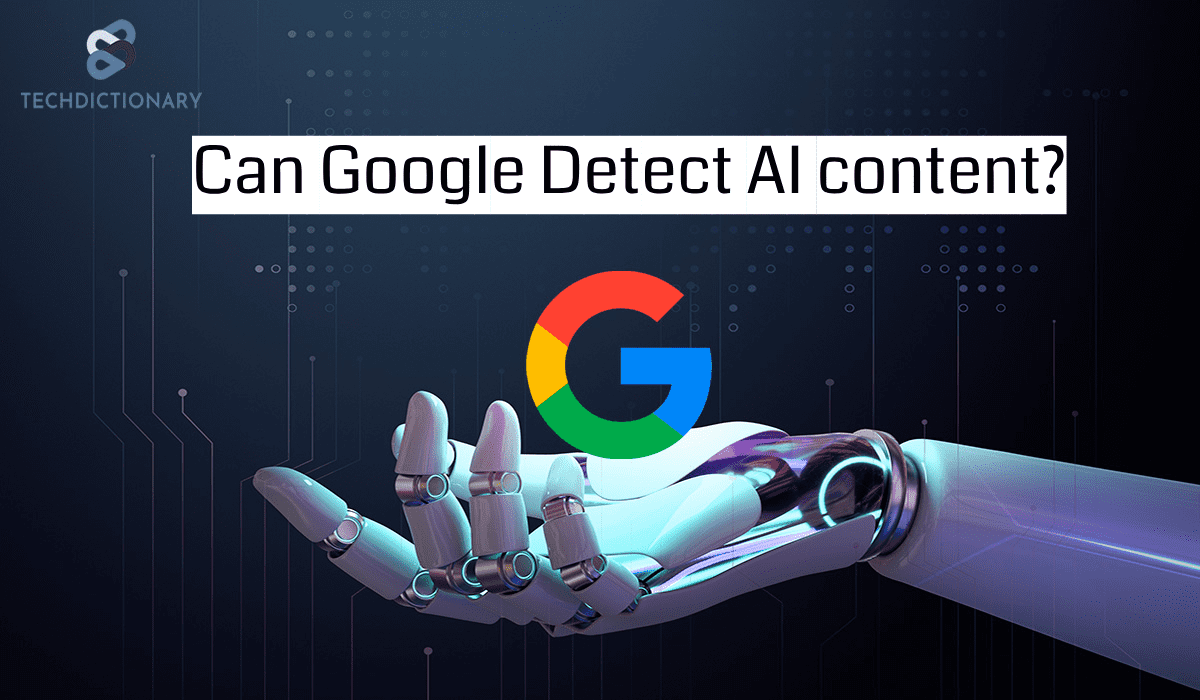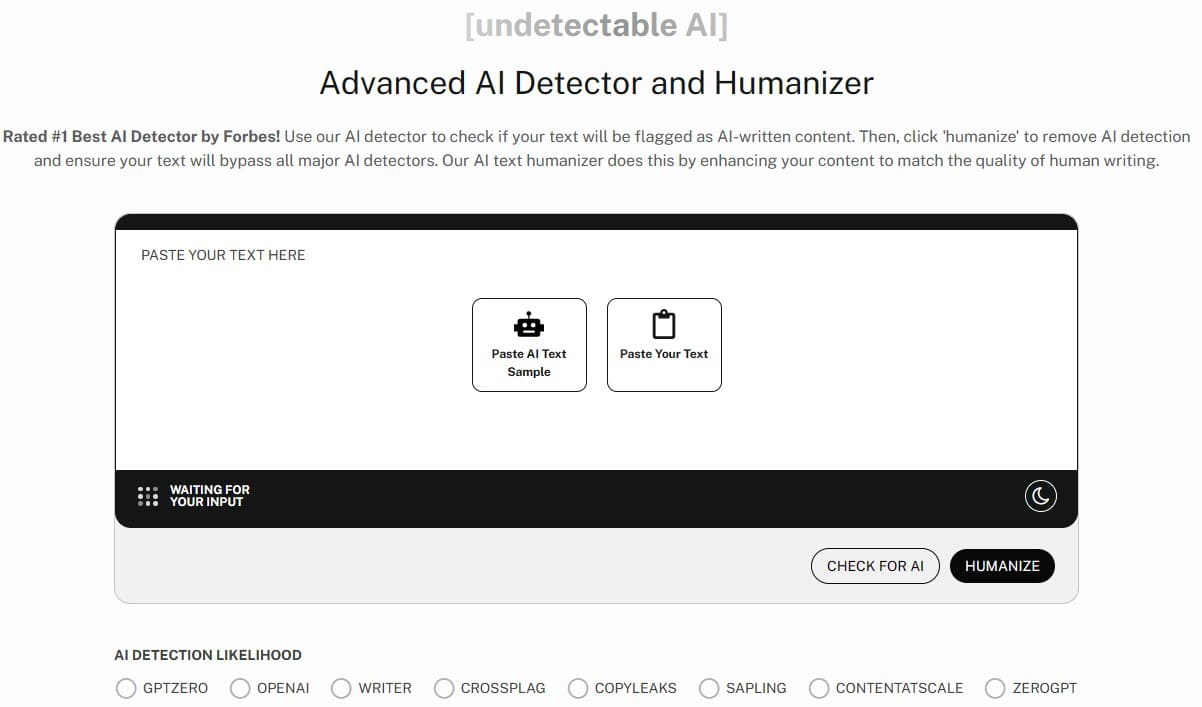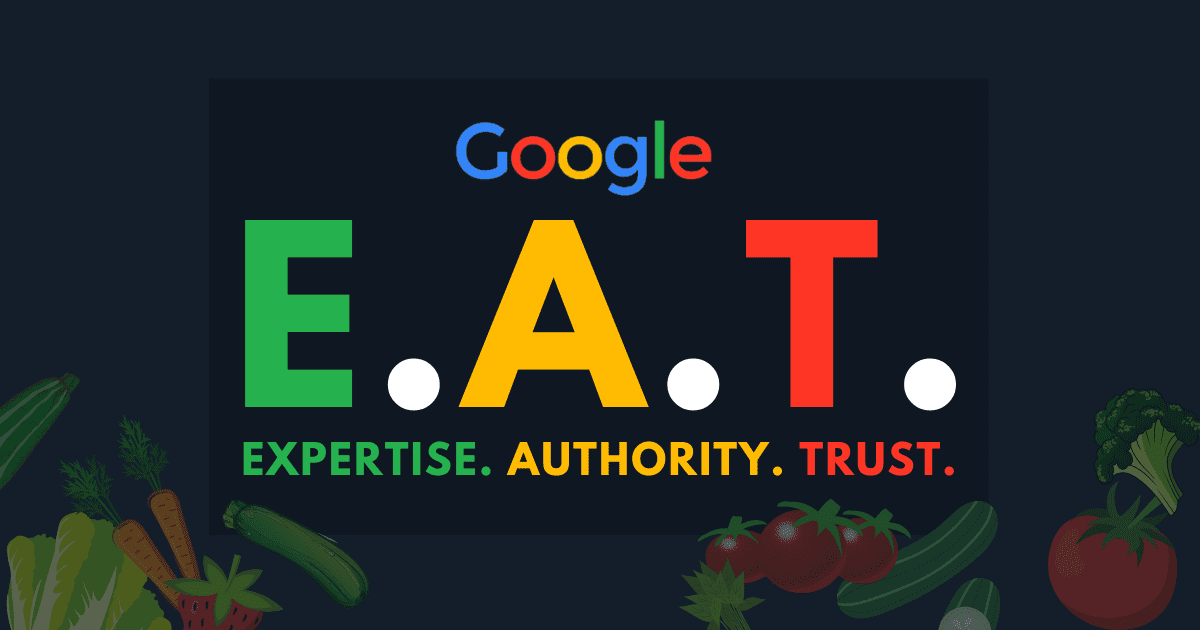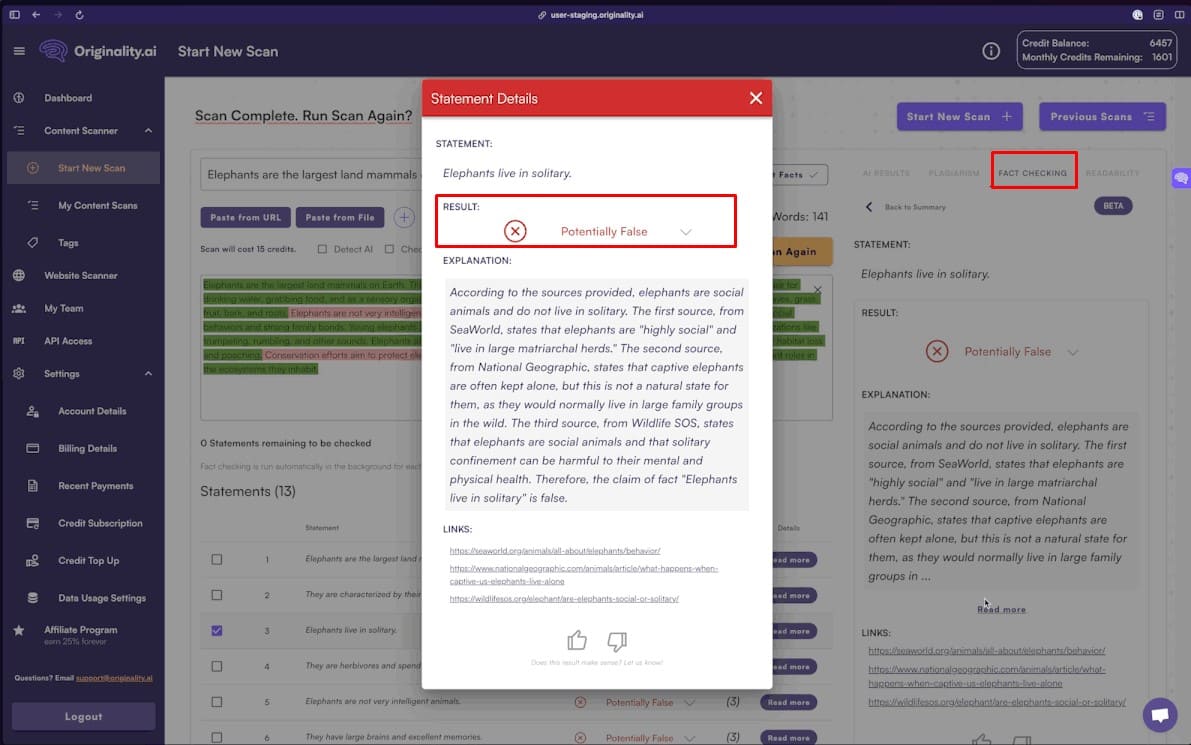
As artificial intelligence (AI) continues to evolve, so does its integration into various sectors, including content creation. This raises an important question that many newcomers in the tech industry, especially those involved with SEO content, ask: “Can Google detect AI content?”
This article delves into the intricacies of AI-generated content, Google’s capabilities in identifying such content, and the broader implications of these advancements.
AI content is text generated by artificial intelligence (AI) algorithms based on its huge database. These algorithms, such as GPT (Generative Pre-trained Transformer) and others, are designed to produce text that mirrors human writing styles.

An example of AI writing tools
Related Articles: AI vs Human Writing 2025: Which Writers Is Better For Content?
The use of AI to generate content has become highly efficient and useful for content marketers, publishers, and creators looking for efficiency and scale.
However, it also introduces challenges such as potential quality issues, the authenticity of voice, and ethical concerns regarding originality and misinformation.
Yes, Google can detect AI content. However, Google will not penalize it for being AI-generated if it is high-quality and does not manipulate search rankings. This is confirmed by Google Search Central as well:
“Automation has long been used in publishing to create useful content. AI can assist with and generate useful content in exciting new ways.”
Google can use various techniques to detect AI-generated content, including analyzing language patterns, user engagement, and the source of the content. However, they have made it clear that the quality of content is more important to them than how it was produced.
“Our focus on the quality of content, rather than how content is produced, is a useful guide that has helped us deliver reliable, high-quality results to users for years.”
As long as AI-generated content is informative, original, and adheres to Google’s E-A-T guidelines (Expertise, Authoritativeness, and Trustworthiness), Google will not penalize content creators for using AI.

E-A-T checklist. Source: Linkedin.
No need for any specific example. In the March Google Core Update, many websites with low-quality AI-generated content were deindexed, while others with high-quality content were unaffected.
Not only is Google getting smarter, but AI writing tools’s algorithms are also constantly learning and improving.
Some AI-generated tools, with their humanized mode, can bypass most of the AI detections, such as Undetectable AI, StealthWriter, and GravityWrite. We have already reviewed these AI tools. Find out more information.
However, AI can make mistakes, raising concerns about the dissemination of false information and misleading news.
Google might work with AI study groups to stay ahead of the curve. If it knows how AI content is made, Google can improve its recognition algorithms and ensure that you, the user, see only high-quality content.
One of the critical implications of AI content is its potential to spread misinformation rapidly. AI can generate believable but false narratives at a large scale, which poses significant risks during critical times such as elections or public health crises. Google’s detection mechanisms are crucial in mitigating these risks by ensuring that credible, verified content ranks higher than AI-generated misinformation.
AI-generated content can also be used to manipulate search engine results, pushing certain agendas or products without regard to user benefit. This manipulation not only undermines the quality of information available to users but also the integrity of digital marketing practices. Google’s efforts to detect and devalue such manipulative content are vital for maintaining a trustworthy digital ecosystem.
AI content creation can be a game-changer, but it’s important to use it strategically to avoid any potential pitfalls. Here at TechDictionary, we want to ensure your AI-powered content shines. Let’s delve deeper into our five tips to help you leverage AI without getting penalized:
AI tools are mostly the same. How do you make your content different from others using AI tools? A prompt is the key. The more detailed the prompts are, the higher-quality content you will get.
Here are our tips to make the prompt better:
If you are an SEO, feel free to leave a comment if you need the prompts for SEO articles. We’re happy to help.
Google consistently highlights in their guidelines that the most crucial aspects of content creation are quality, accuracy, and emotion. Make sure that your AI-generated content is useful and provides helpful information for user queries.
Here’s our advice:

Originality AI Fact Checker
If you work in content, Google’s E-A-T must be your compass. Never heard of E-A-T? Simply, it stands for Expertise, Authoritativeness, and Trustworthiness. Here’s how to leverage AI while still following E-A-T in mind:
AI can help you get started, but don’t let it stop you from being creative. Here are some ways to make it your own:
Not all AI writing tools are created with the same quality! Here’s how to find the perfect match for your needs:
So, “Can Google Detect AI Content?”. The answer is yes, Google can detect AI content, but they will not penalize you just because you use it. It depends on how you use it.
Keep exploring the exciting world of AI content creation, and stay tuned for more insightful dives into the world of AI from TechDictionary!
By following these tips, you can transform AI content creation into a powerful asset for TechDictionary. Remember, AI is a tool, and like any tool, it requires a skilled user to unlock its full potential. Focus on crafting clear prompts, maintaining human oversight, and prioritizing quality over quantity. With the right approach, you can leverage AI to create informative, engaging content that both Google and your readers will love. So,

